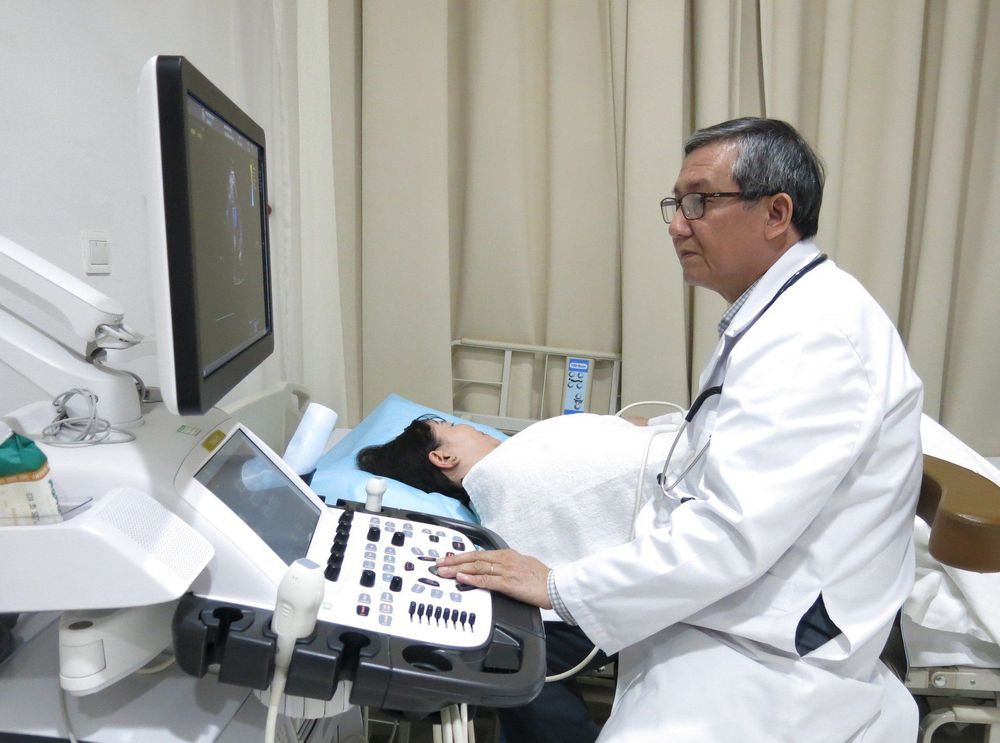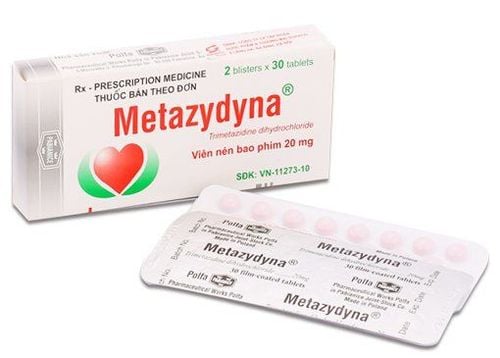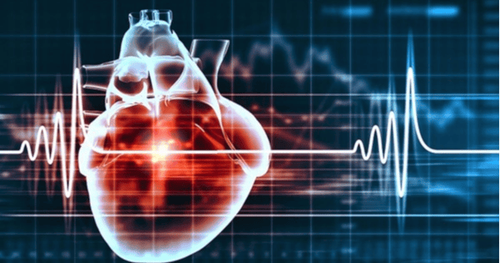This is an automatically translated article.
The article is professionally consulted by Master, Doctor Do Nguyen Thuy Doan Trang - Head of Extracorporeal Circulation Team - Cardiovascular Center - Vinmec Central Park International General Hospital. The doctor is a leading expert in Extracorporeal Circulation in cardiac surgery and cardiac resuscitation, Cardiovascular medical treatment.Heart murmur in children is not a disease but a sign of heart disease that the child may have. Knowing the following information will help you better understand the signs so that you can early identify the disease and have timely treatment.
1. What is a heart murmur?
Heart murmurs are abnormal sounds produced during cardiac cycles. When the heart rhythm is normal, it makes two sounds like "Blopping", the sound of the valves opening and closing, but in the case of turbulent blood flow in or near the heart we will hear popping or hissing sounds, these sounds can be heard with a stethoscope.Heart murmurs can be present at birth (children with congenital heart disease) or develop later in life. A heart murmur is not a disease - but an abnormal murmur may be related to a heart problem.
Heart murmurs can be harmless and require no treatment. When a child's heart murmur is heard, the doctor will likely order a follow-up to make sure it isn't caused by a serious underlying heart condition. The necessary treatment is directed at the cause of the heart murmur.
2. Symptoms

Abnormal heart murmurs often have no obvious signs, other than the unusual sounds when the doctor listens to the heart. However, there are still some signs or symptoms that could indicate a heart problem:
Blue skin, especially on the fingers and lips. Swelling. Shortness of breath. Big liver. The neck veins are dilated (floating). Anorexia and symptoms do not develop normally in the child. Excessive sweating Chest pain. Dizzy. Fainting. A murmur in a child's heart may not be serious, but if you want to diagnose a heart problem, schedule an appointment to see your doctor. Your doctor can tell you if the murmur is harmless and doesn't require any further treatment, and if a heart risk is found, it should be followed up and checked.
3. Diagnostic measures
Heart murmurs are usually detected when the doctor listens to the heart using a stethoscope during a physical exam.To check if the murmur is harmless or abnormal, the doctor will look at:
How loud is the murmur? (rated on a scale of 1 to 6, with 6 being the loudest) Hearing position? Can a murmur be heard in the neck or back? Intensity (high, medium, low)? What affects the sound? What if the patient changes body position or exercises? When does the murmur occur and usually for how long? If the murmur occurs when the heart is filling with blood (diastolic murmur) or during a heartbeat (continuous murmur), there may be a heart problem. It will take some further imaging to figure out what the exact problem is. Your doctor will also look for signs and symptoms of heart disease and ask about your medical history and evaluate whether other family members have had heart murmurs or other heart problems.
Additional tests If the doctor thinks the heart murmurs are abnormal, additional tests may be done including:
X-ray: shows pictures of the heart, lungs and blood vessels. If the heart is enlarged, there may be an underlying problem causing the heart murmur in the baby. Electrocardiogram (ECG): In this noninvasive test, a technician places electrodes on your chest that record the electrical impulses that make the heart beat. These ECG results can help your doctor evaluate the type of heart rhythm and look for structural problems. Transthoracic echocardiography: shows detailed images of heart structure and function. The ultrasonic waves are transmitted and the echo is recorded with a transducer. The computer uses the information from the transducer to create a moving image on the video screen. This method helps identify abnormal heart valves, such as calcification or prolapse, and can also detect structural heart defects. Transesophageal echocardiography: uses a flexible endoscope containing a small transducer that is inserted down the throat. The transducer transmits images of the heart to a computer monitor. Because the esophagus is closer to the back of the heart, a transesophageal echocardiogram can produce a better picture than a transthoracic echocardiogram. Cardiac computed tomography (CT) or magnetic resonance imaging (MRI). These methods can help diagnose heart disease and the cause of heart murmurs.

4. Treatment measures
Benign heart murmurs usually do not require treatment because the heart is functioning normally. If the benign murmur is the result of an illness such as fever or hyperthyroidism, the murmur should go away once the condition is treated.In the case of an abnormal heart murmur, the doctor can monitor symptoms and developments over time, then consider medication or surgery.
Surgical treatment:
Open/closed heart surgery or interventional cardiac catheterization, depending on each specific case, choose the appropriate form. Although surgical treatment may be necessary, sometimes a heart murmur can be managed by interventional cardiac catheterization with catheterization through a peripheral artery or vein to the heart and performing complete repair. whole. Examples of treatments include:
Patching holes in the heart (atrial septal defect closure, ventricular septal defect). Valve repair or heart valve replacement (aortic regurgitation, Ebstein's disease...) Repairs abnormal blood vessels. Widen blood vessels that are too narrow by dilation and stenting (stent in coarctation of the aorta...). Vinmec International General Hospital is one of the hospitals that not only ensures professional quality with a team of leading doctors, modern equipment and technology, but also stands out for its examination and consulting services. and comprehensive, professional medical treatment; civilized, polite, safe and sterile medical examination and treatment space.
Please dial HOTLINE for more information or register for an appointment HERE. Download MyVinmec app to make appointments faster and to manage your bookings easily.














